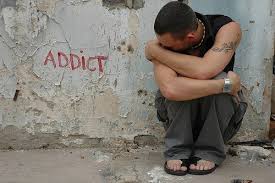 As a psychotherapist and life coach specializing in addiction recovery, I am frequently asked by family members what they should or should not do. Often family members are worried that taking a particular action or even making a specific statement to the addict in recovery can create the risk of a relapse or may somehow impede the progress being made.
As a psychotherapist and life coach specializing in addiction recovery, I am frequently asked by family members what they should or should not do. Often family members are worried that taking a particular action or even making a specific statement to the addict in recovery can create the risk of a relapse or may somehow impede the progress being made.
In many situations, I find that family members can also benefit from professional services. In some cases, particularly with codependency issues in a family, all members of the family can benefit from therapy to address their own codependent behaviors and to learn more effective and healthy coping strategies and methods.
Another form of support I am able to offer my clients and their families is life coaching. As a non-therapeutic approach, it provides the family members with a confidential place to discuss their challenges and to create solutions that work for their own unique situation and family.
Through my own experiences with addiction and addiction recovery on a personal and professional level, there are some highly effective strategies that most families can use.
To help your loved one, the following strategies, tools, and techniques can be highly beneficial for everyone in the family:
· Support all treatment recommendations – being positive and supportive of all therapeutic and non-therapeutic treatment options the addict purses is very helpful. For example, there may be a recommendation to change fitness and nutrition levels, or perhaps to join a support group or a group coaching program. Encouraging participation and being open to all positive changes is a simple way to rebuild lost connections and trust between family members.
· Assist with appointments and medications – helping the individual in recovery to get back and forth to therapy appointments, or to remember online group meetings, and to ensure any medicines are taken as required is a sign of support and encouragement. It is essential to find ways to do this without seeing controlling or overbearing, and talking to everyone involved and creating systems is an effective way to manage this concern.
· Be respectful of their needs – people in recovery should not be exposed to situations where alcohol and drugs are present, even if it is a glass of wine at a meal or a beer during the game. Find ways to celebrate in the family that promotes abstinence from alcohol and drugs for all and not just for the individual in recovery.
· Be aware of signs of stress – learning to identify times when the person in recovery is under stress is essential as it allows you to provide additional support and time. Being there just to listen while the other person talks, to support their healthy choices, and to assist in times of stress is a powerful way to show you care.
Through life coaching or psychotherapy family members of those in recovery can work on improving communication skills, developing stronger interpersonal skills and learning more about how to demonstrate their commitment to the recovery process.
She helps singles navigate the dating process to find the love of their lives. Take her quiz to find out if you’re a love addict, sign up for a 30-minute strategy session, or learn more about how to get over a break up. Sherry maintains a private practice in Westlake Village, and is a sought after online dating and relationship coach. For more information visit www.sherrygaba.com of sign up today for Sherry’s online group coaching program for $19/month https://

